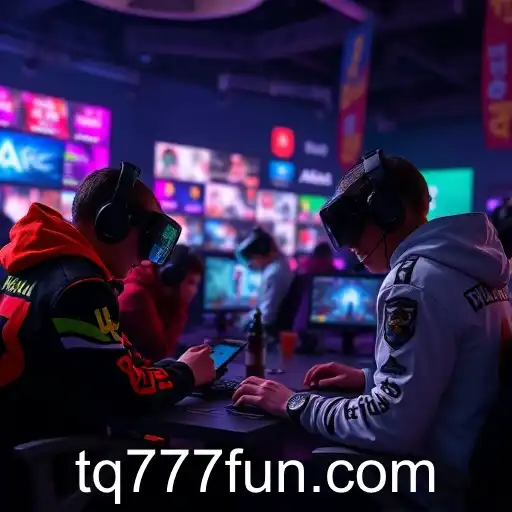
Exploring the dynamics and innovations in online gaming communities as they evolve in 2025.
In recent years, online gaming communities have grown exponentially, becoming a vital part of the digital social landscape. Game websites like 'tq777' have emerged as central hubs for gamers seeking both competition and camaraderie. These platforms offer more than just games; they provide forums, chat rooms, and other social features that foster a sense of community. In 2025, the evolution of these communities continues to be influenced by technological advancements and societal changes.
One significant trend is the integration of virtual reality (VR) into gaming, which has revolutionized user engagement. With the advancement of VR technology, gamers are experiencing a more immersive environment, allowing for deeper emotional connections with other players. This has contributed to the development of subcultures within gaming communities, where players share not just a love for gaming, but also unique traditions and social norms.
'Tq777', for example, has leveraged these advancements by introducing VR-enhanced tournaments and social events, creating opportunities for players to meet in virtually-crafted spaces that mimic real-world interactions. The inclusion of AI-driven avatars has further personalized the gaming experience, enabling players to explore vast digital worlds while interacting in real-time.
Moreover, these gaming platforms have become significant economic contributors. The global esports industry continues to grow, offering professional players lucrative opportunities and incentivizing gaming companies to innovate constantly. Reports indicate that this sector could surpass traditional sports in terms of viewership and revenue by the end of the decade.
The dynamics within these communities are also shaped by their diversity. Gamers from varied backgrounds bring different perspectives, fostering a rich, multicultural space that challenges social norms and promotes inclusivity. As these communities grow, they also face challenges related to online harassment and digital ethics, prompting discussions around user safety and platform regulations.
Overall, as we navigate 2025, it is clear that online gaming communities are not just about playing games. They represent a complex web of social interactions, technological innovations, and evolving cultural landscapes. Whether for recreation or professional pursuit, these digital spaces continue to redefine how we connect and compete in an increasingly wired world.




